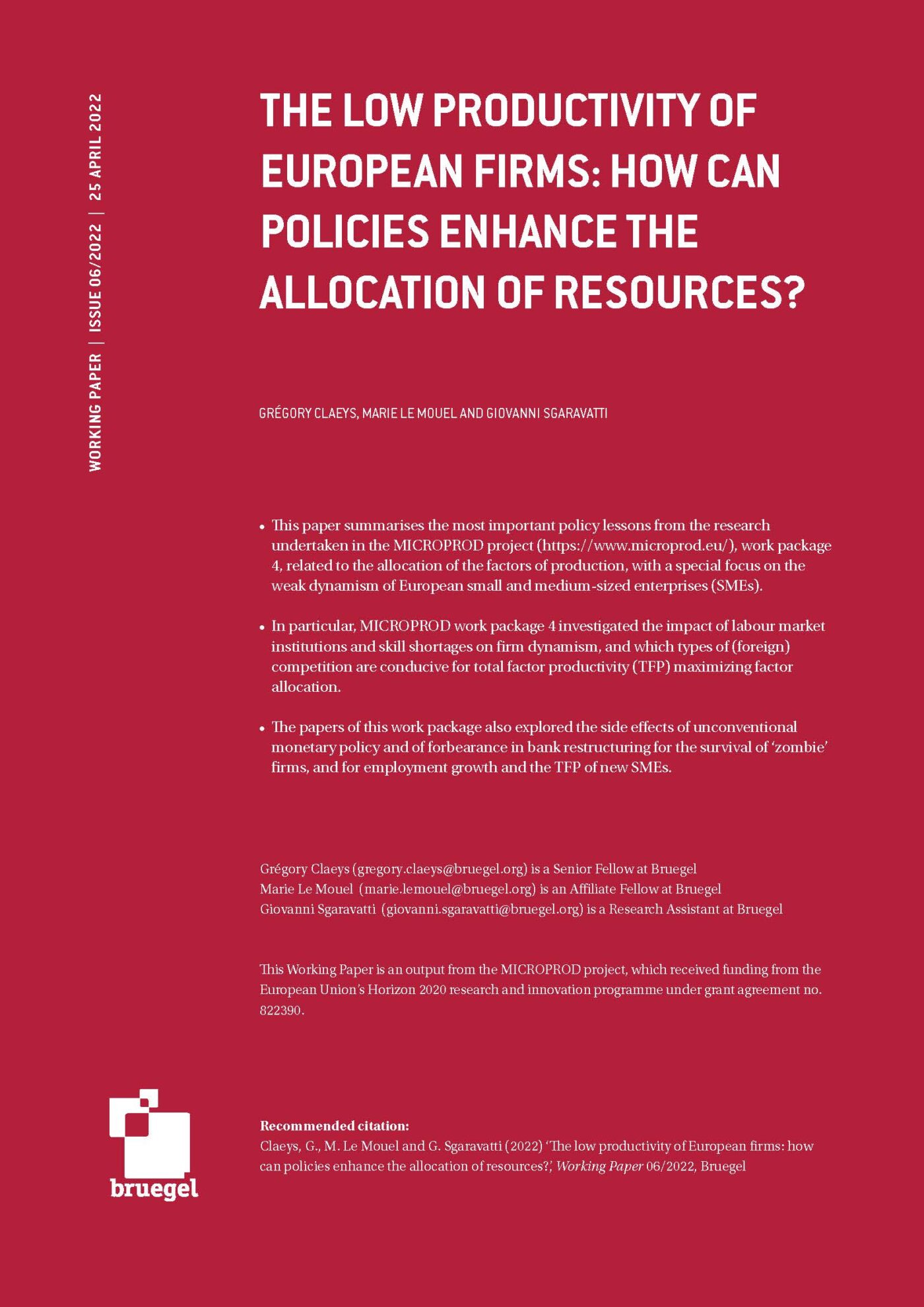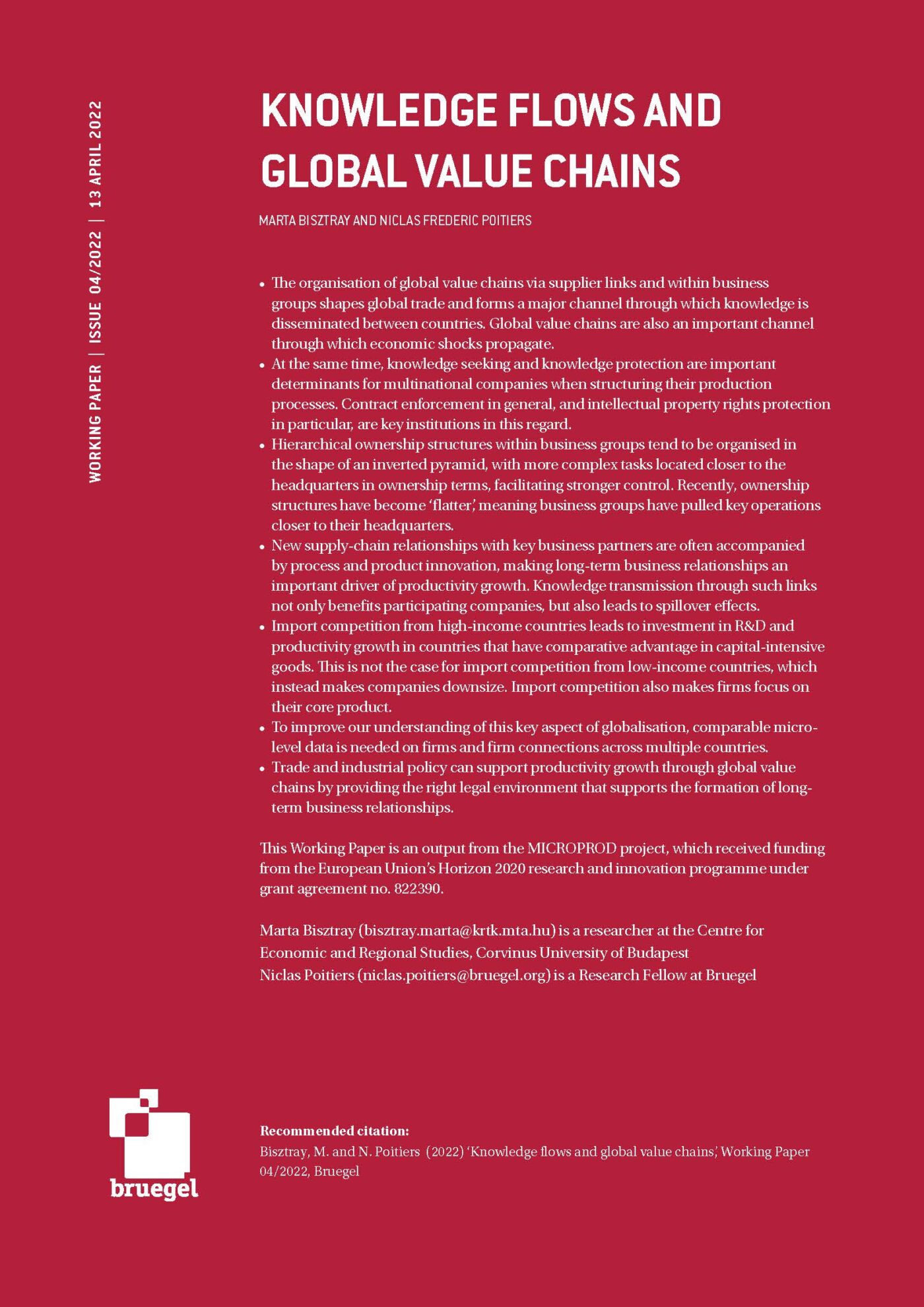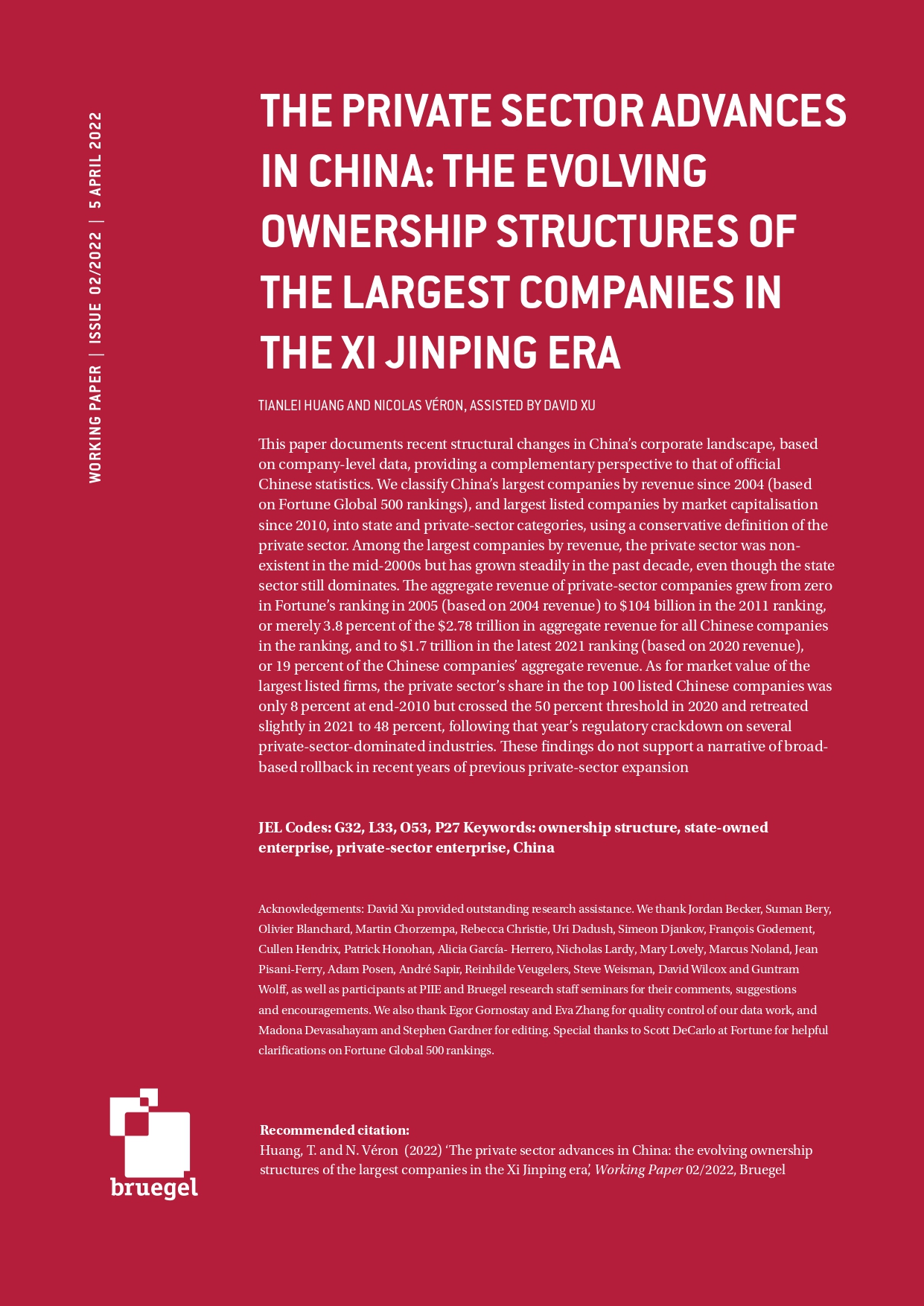Policy Contribution
Making the best of the European single market
Now more than ever, the EU needs to address concerns about the significant decline in productivity growth and the increasing perception of unfairness. Completing the single market would unlock the EU's growth potential. At the same time, the EU should empower member states to fight inequality by helping them better distribute the gains arising from economic integration.
- The slow-down in productivity and income over the past decade has weakened the European Union’s output legitimacy, which is grounded in delivering prosperity to its citizens. At the same time, decreasing growth reduces the capacity of governments to maintain existing levels of welfare protection and translates into a perception of rising unfairness and inequality across and within EU countries.
- It is estimated that remaining non-tariff obstacles, in particular in services sectors, limit intra-EU trade to a level about four times smaller than the intensity of trade between US states. By completing the single market, the EU could generate significant income gains. However the more straightforward steps have already been taken, so the single market agenda now touches upon specific domestic regulations in EU countries.
- We recommend a two-pillar strategy: for sectors with large externalities and/or economies of scale (such as energy or telecoms), regulations should be harmonised and at least close coordination between regulators should be achieved; for other services sectors, the efficiency of individual regulations on a cost-benefit basis with respect to their objective should be assessed, with systematic benchmarking.
- We also recommend pursuing a credible environmental policy agenda on a destination basis (impacting both EU and non-EU firms) rather than on an origin basis (which is the case today), through a combination of ambitious technical standards, a reference path for the carbon price and revenue-neutral tax instruments. This would stimulate long-term investment in the energy transition without overly hurting EU firms’ competitiveness.
- To further stimulate investment, especially in innovative sectors, we suggest moving ahead decisively with the capital markets union agenda. In parallel, the use of EU funds should be reviewed taking into account the objectives of economic convergence, spillovers between member states and solidarity.
- EU national governments are responsible for welfare-related redistribution. However EU policies can help by empowering member countries to address the possible effects of EU integration, or by developing EU-wide instruments to limit its impact on possible losers. We argue that tax and social security avoidance or fraud need to be combatted with modern tools, eg a single electronic interface to monitor the payment of social charges of posted workers in their home countries. In order to fight corporate tax avoidance and improve tax fairness, the interest and royalties directive could be modified if the project of a common, consolidated corporate tax base (CCCTB) proves too difficult to agree.
- Finally, we recommend making social security systems more neutral with respect to intra-EU migration, eg by introducing the full continuation of home-country unemployment rights for migrant jobseekers, with closer cooperation between national employment services, and by centralising information on pension entitlements on a single platform.












